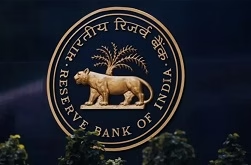In India, “digital arrest” refers to a scam where individuals are coerced into paying money through threats of legal action, often delivered via phone calls or messaging apps . This scam exploits the fear of arrest and legal repercussions to defraud victims .
Key aspects of the digital arrest issue in India:
- Modus Operandi: Scammers pose as law enforcement or government officials and contact individuals, often via WhatsApp or phone calls . They falsely accuse the person of illegal activities, threatening arrest and legal consequences unless a payment is made .
- Lack of Legal Framework: Currently, the Indian legal framework lacks specific provisions to deal with digital arrests, creating a challenge for law enforcement and leaving a gap in addressing cybercrimes .
- Impact: This scam can cause significant financial and emotional distress to victims .
- Ankush Bahuguna Case: The case of Ankush Bahuguna, an Indian content creator, highlights the realities of digital arrests .
- PM Modi’s Warning: Prime Minister Modi has warned against these “digital arrest” scams, emphasizing the need for public awareness .
- Red Notices: It is important to note that a genuine arrest warrant is based on a court order issued by judicial authorities in the requesting country . Interpol notices are requests to law enforcement worldwide to locate and provisionally arrest a person pending extradition, surrender, or similar legal action .
In summary, “digital arrest” in India is a fraudulent scheme that preys on people’s fear of legal trouble, and the nation’s legal system is still evolving to address this cybercrime .
Legal implications of digital arrests in India :
While “digital arrest” is not explicitly defined as an offense under Indian law, several provisions of the Bharatiya Nyaya Sanhita (BNS) 2023 and the Information Technology Act, 2000 can be applied to prosecute perpetrators .
Legal implications and applicable offenses:
- Impersonating a public servant: Under the BNS, impersonating a public servant is punishable with imprisonment from six months to three years, along with a fine .
- Cheating: The BNS also addresses cheating, which can lead to imprisonment up to seven years and a fine .
- Forgery: Forgery under the BNS is punishable with imprisonment up to seven years and a potential fine .
- Extortion: Extortion, which involves obtaining something through coercion, can result in imprisonment up to ten years and a fine under the BNS .
- Identity theft: Under the IT Act, identity theft is subject to a penalty of up to three years in jail and a fine of up to INR 1 lakh .
Additional points:
- Lack of Specific Legislation: The existing Indian legal framework lacks specific provisions related to digital arrests .
- High Court Cognizance: The Rajasthan High Court has taken suo moto cognizance of the digital arrest issue, emphasizing that there is no concept of “digital arrest” under the Bharatiya Nagrik Suraksha Sanhita, 2023 (BNSS) .
- Government Measures: The government has blocked Skype IDs and WhatsApp accounts used for digital arrests and has issued public alerts .
- Supreme Court Guidelines: The Supreme Court has clarified that notices potentially leading to arrest should be served traditionally, not electronically .
In summary, while no specific law exists for “digital arrest,” Indian law addresses the various elements of the crime, such as impersonation, cheating, forgery, and extortion, to prosecute offenders .

























